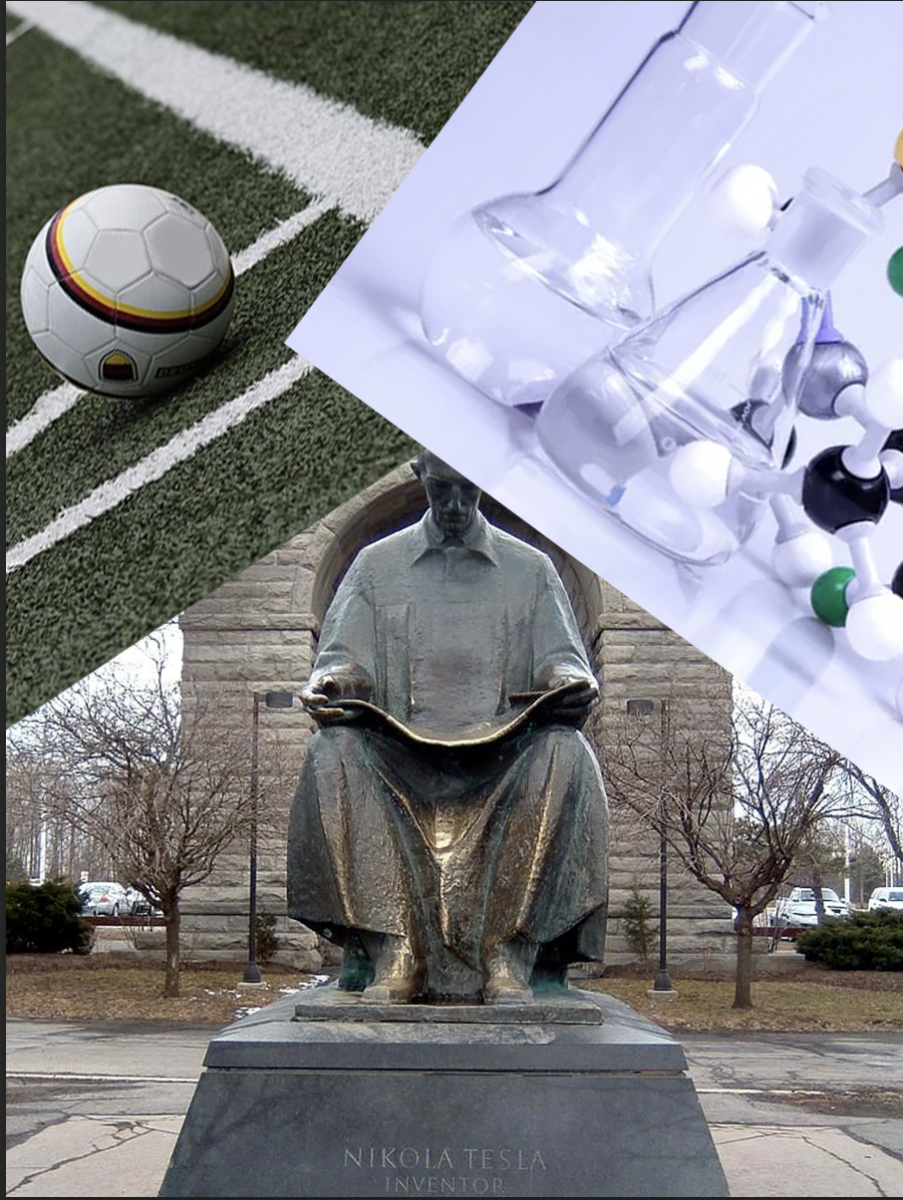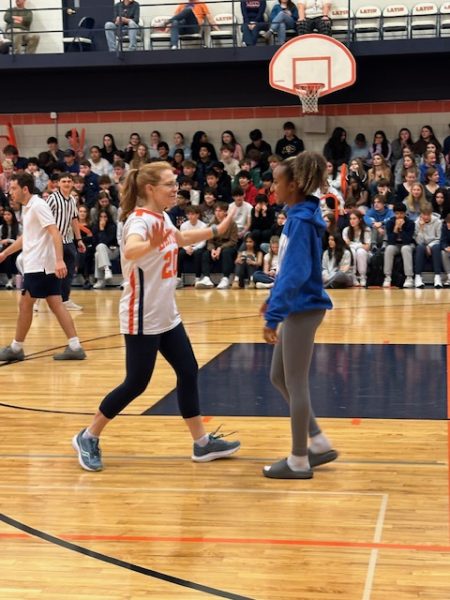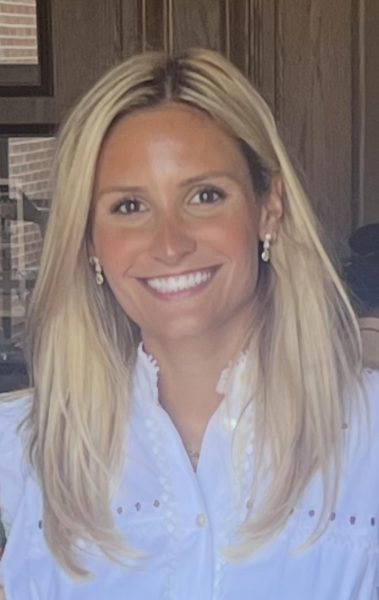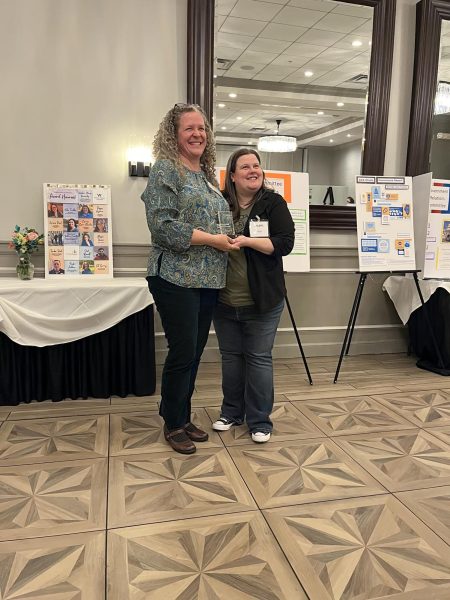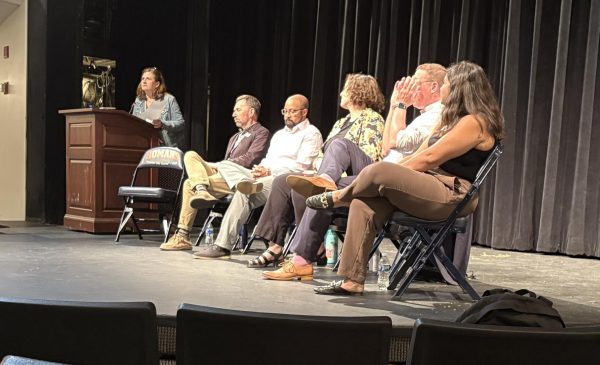Exploring Upper School Semester-Long Electives
This year’s spring semester brings many exciting opportunities, including new semester-long electives.
The Upper School curriculum is constantly evolving to align with the student body’s diverse interests. This year, multiple new electives were introduced on various topics, ranging from shaping the future in Prototyping and Innovation to dissecting the roots of the most popular sport in the world.
Upper School computer science teacher Blake Gideon introduced a new technology-related course into the catalog: Prototyping and Innovation. Mr. Gideon said, “You don’t have to code in order to be passionate and enthusiastic about technology.” This course creates a space for those who have an interest in technology, but not so much in coding. Students will explore the world of technology not only today, but try to understand and predict the applications of technology in the future.
Mr. Gideon worked alongside Computer Science Department Chair Ash Hansberry to write and create a curriculum that implements critical thinking and class collaboration while including a hands-on approach to projects and in-class activities.
In the course, students have the choice to take projects in whatever direction they feel most comfortable. Mr. Gideon emphasized that all students should be able to use their “academic strengths” to learn and research in a way they feel passionate about. Whether a student chooses to write a research paper, create a series of artworks, design a comic book, or work with another medium, they will have the opportunity to share their research and insights in a unique way.
Currently, students in the course are collaborating with the Filmmaking class to create a documentary about the school community’s thoughts and predictions for the future. Later in the year, students will research a specific innovator of their choice, such as Nikola Tesla or Steve Jobs, and share their findings about the inventor’s path to success.
While the class is still in its early stages, Mr. Gideon has found that the students are “energetic about the work that [they’re] doing.”
Junior Ryder Shiffman hopes to engage in discussions and research while working alongside his peers for the rest of the semester. “[I hope] to use [my] takeaways to help address any challenges that society may face in the future,” Ryder said.
Similarly, the Science Department has been looking to expand its elective offerings to cultivate every student’s interests. For students who have an interest in chemistry and want to continue their learning beyond sophomore year, Organic Chemistry is the perfect option.
Over the years, the course has been taught by various faculty members, sometimes as a full class, but more commonly as an Independent Study Project (ISP). This year is the first time Organic Chemistry has been taught in the classroom environment with standards-based grading, and it is all orchestrated by Upper School science teacher Jonathan Legendre.
While the ISP and the actual class have parallels in curriculum and pacing, Mr. Legendre was tasked with creating appropriate learning objectives to assess students’ work properly. Another shift from the one-on-one ISP work to an actual classroom is working together. Mr. Legendre said that Organic Chemistry “is a really collaborative class, and I feel like our long blocks, we got a lot of great work done.” It is an environment where students are always helping each other, whether they are working on labs during long blocks or unlocking new concepts through self-paced worksheets called POGILS.
Senior Max Wyszkowski Allain, an Organic Chemistry student, enjoys the challenge and learning opportunities of the class. He feels it is easier to understand and “tackle the complex structures of organic chemistry in a group,” as opposed to how it was previously run as an ISP.
New electives aren’t just limited to STEM, though. Sophomores now have two more options when they choose their semester-long history courses. This year, Upper School history teacher Ernesto Cruz created the class Imperialism, Industrialization, & the Beautiful Game: A History of Soccer. Students will address “the spread of the game, the creation of the FA, CONMEBOL, and FIFA, as well as the issues of race, class, and gender” in the game, according to the course description.
“After the first class, I realized it is more about what made soccer what it is rather than the path it took to get here,” sophomore Thomas Dwyer said. “I am interested in learning about the problems the sport faced during its creation and popularization, throughout the rest of the semester.”
Similarly, sophomore Arjun Sawardekar said, “[I enjoy] learning about the complicated roots of soccer, and [look] forward to engaging in discussions and projects about the spread of soccer from England to the rest of the world.”
From the uncharted territories of Prototyping and Innovation to the chemical complexities of Organic Chemistry to the historical journey through the evolution of soccer, these new electives cater to diverse interests and empower students to explore their academic strengths. As senior Kaya Bhandari said, “these new electives are a less stressful environment to learn about something you’re genuinely interested in.”

Timothy Kempton (’26) is a junior at Latin and is excited to be a staff writer for The Forum. Timothy enjoys writing news pieces to inform the readers...


















































